'Frustration, anger, helplessness': Virginia pipeline protesters on what drove them to live in the trees
The Independent spoke with protesters about why they're staging tree sits along the proposed pipeline route
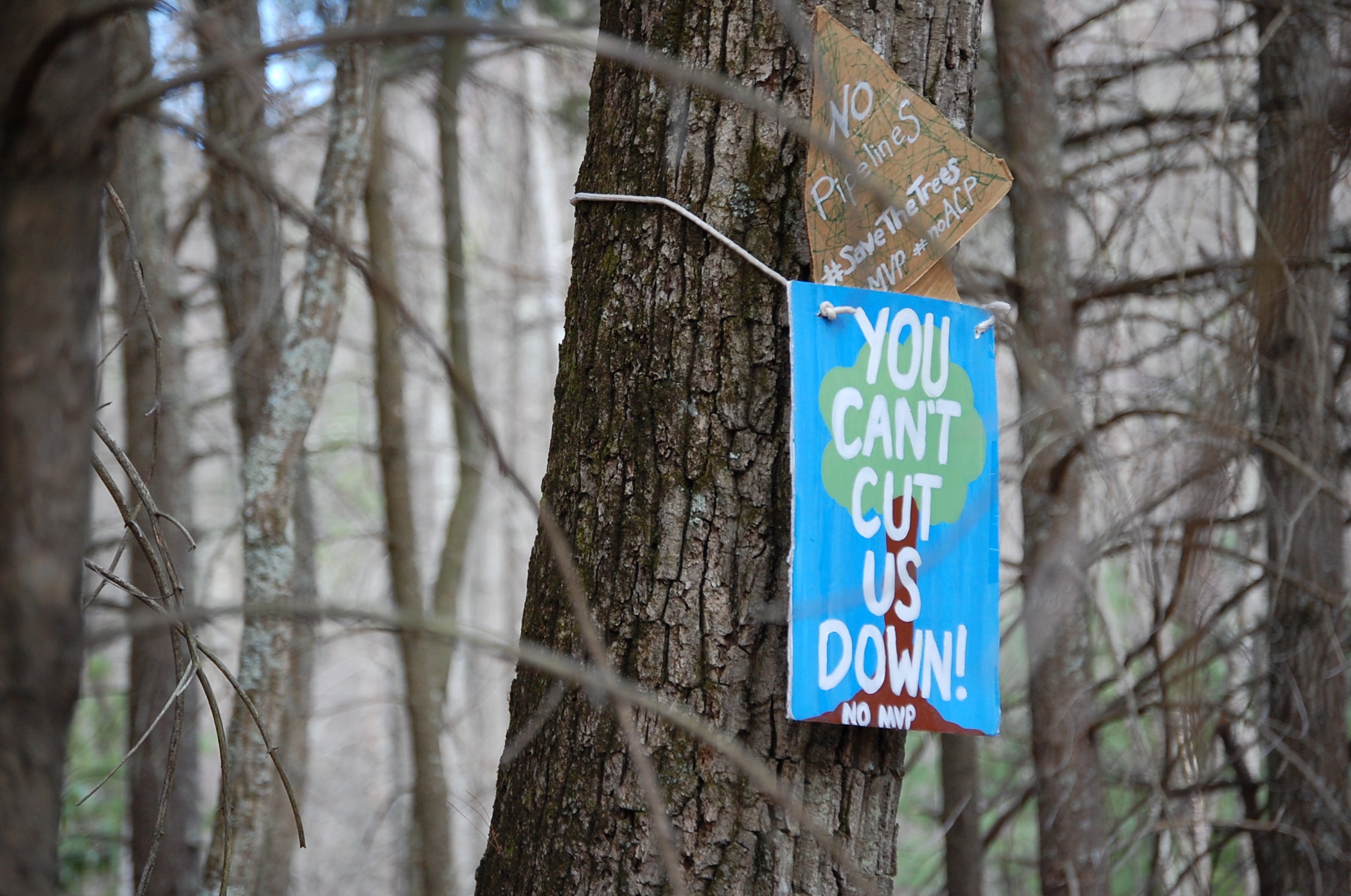
In the mountains of Virginia, a man going by “Deckard” is living 30 feet above the ground, suspended on a 4-by-8-foot platform in a tree inside the George Washington and Jefferson National Forests. And he’s not alone.
At least seven people in Virginia and West Virginia have taken to the trees in recent weeks, to protest the construction of a natural gas pipeline across the two states. Some have stayed there for more than a month, braving freezing temperatures, dwindling food and water supplies, and regular appearances by US Forest Service (USFS) and private security officers.
At the oldest of these tree sits, 29-year-old Deckard spends his days reading bell hooks and Howard Zinn, doing crossword puzzles, and attempting to cook microwave meals on his tiny propane camp stove.
His mini-van-sized “home” is perched in a tree on Peters Mountain – the same mountain that the Mountain Valley Pipeline will bore through on its way from the fracking fields of West Virginia to an existing gas line to the south.
His sit represents the fears of many locals: That the 303-mile pipeline will threaten the water supply to the area, harm wildlife, and destroy local hiking trails. Others oppose the use of fossil fuels in general, and don’t want more infrastructure built to support the industry.
As a self-described environmentalist and Virginia native, Deckard said the tree sit felt like something he had to do.
“I didn't have any profound moments of clarity,” he said in a phone interview from his airy perch. “It was just the accumulation of frustrations, and anger, and feelings of helplessness that made inaction impossible.”
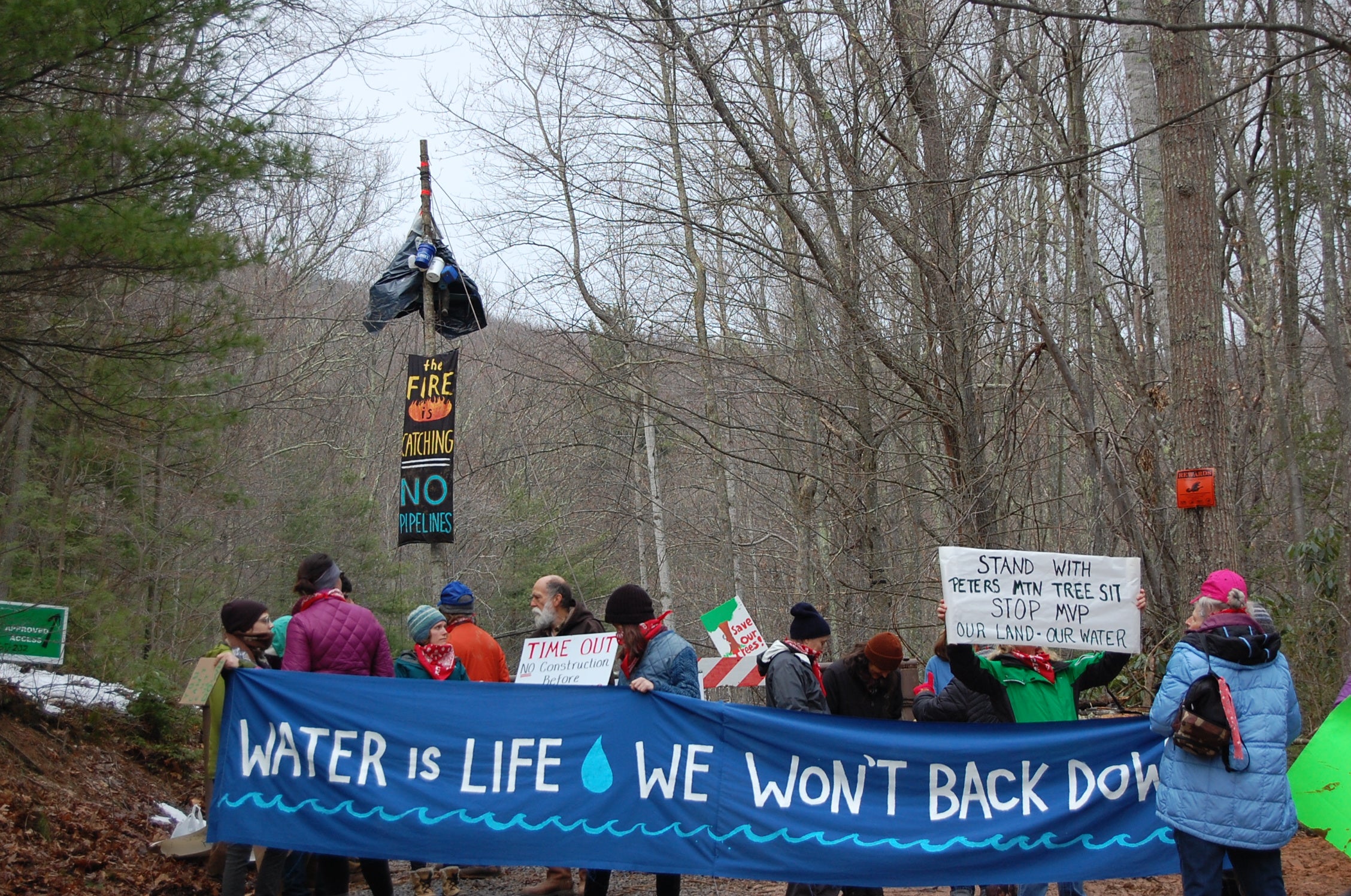
Not everyone in the area opposes the pipeline so vehemently. Supporters say it will create jobs – an estimated 4,300, of which 34 would be permanent – and boost tax revenues.
Mountain Valley Pipeline (MVP) LLC also notes that federal regulatory bodies have found the adverse environmental impacts of the pipeline’s construction and operation could be reduced to “less-than-significant levels” with a few mitigation measures.
But the project has managed to anger a large contingent of residents outside the local environmentalists. A recent court ruling granted Mountain Valley Pipeline (MVP) LLC the right to buy the private property of more than 300 landowners who live in the pipeline’s path – regardless of whether the owners want to sell or not. At least one of the tree sitters is a landowner who has been ordered to give over her land to construction.
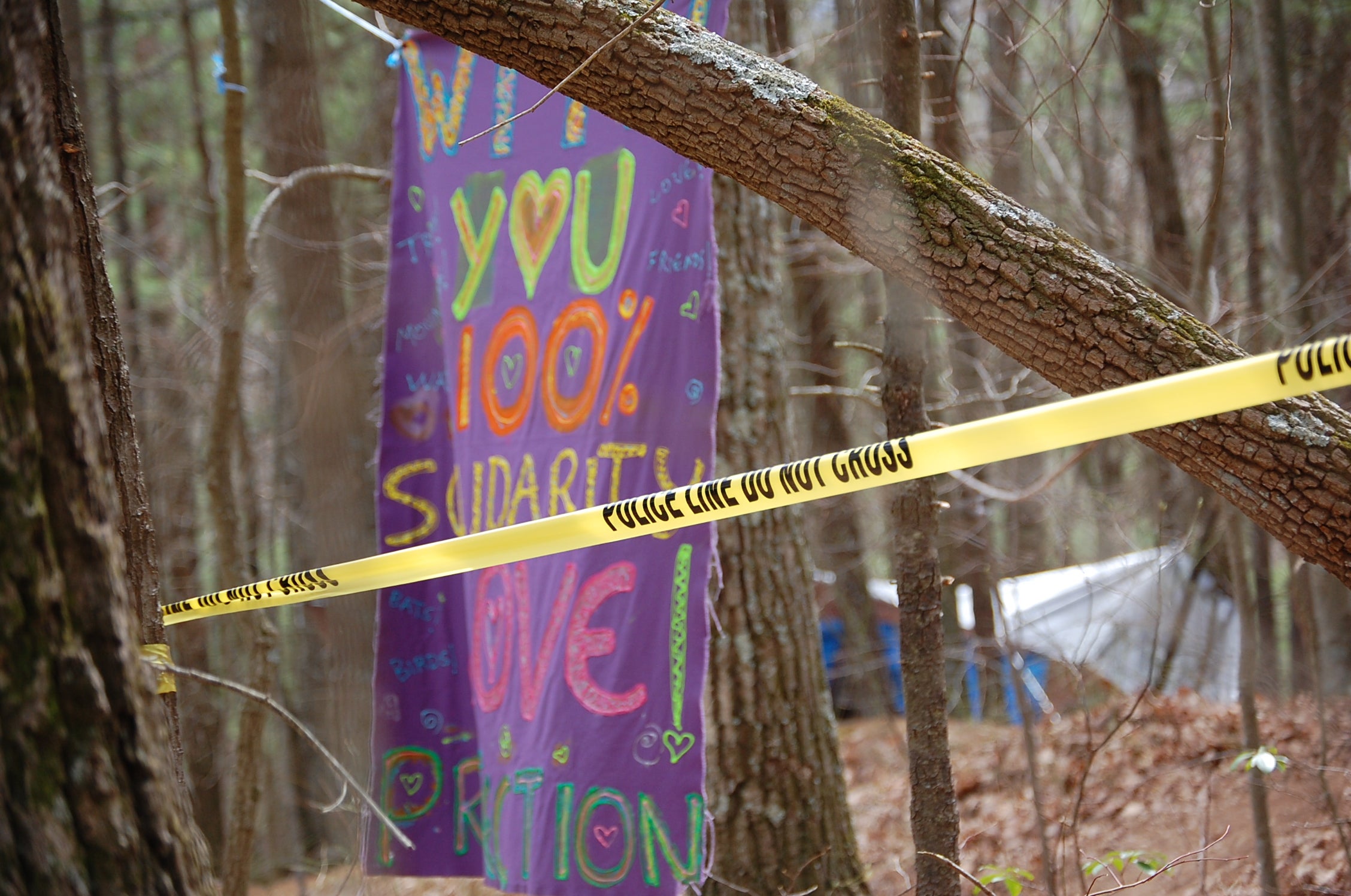
For these reasons and more, locals have been fighting the pipeline since it was proposed in 2014 – filing lawsuits, petitioning legislators, and staging public protests.
On 26 February, however, as chainsaw crews turned up to fell trees on the pipeline route, some protesters felt it was time for drastic action. That night, the tree sit where Deckard is now sitting sprung up on the western side of Peters Mountain – directly in the path of pipeline construction.
“It just seemed like the most obvious way to resist in a semi long-term way,” Deckard explained of the protest.
He added: “I don’t know what the tipping point would be or what critical mass it would require [to stop the pipeline], but it's not going to happen by people not doing anything.
"And I am perfectly capable of sitting in a tree," he said. "Might as well do it.”
The idea caught on. On 27 March, a young woman known as “Nutty” set up camp on other side of Peters Mountain, restricting MVP’s access to the areas where Deckard was camped.
Fifty miles away, in Roanoke County, 61-year-old Red Terry and her daughter, Minor, set up a tree sit on their private property in April. Three more tree sits have since sprung up on the Franklin County farm of Carolyn Reilly, a local woman who has been fighting the pipeline for years.
MVP has urged judges, unsuccessfully, to order some of the tree sitters removed. More recently, the US Forest Service issued a “closure order” within 200 feet of the proposed pipeline route, barring the public from setting foot near the sitters.
The Forest Service says the closure order is meant to protect the public from hazards associated with the pipeline construction. Protesters say it is to keep them from resupplying the tree sitters with food and water.
At least two supporters have been arrested in recent weeks for rushing past the line in an attempt to bring food to the sitters.
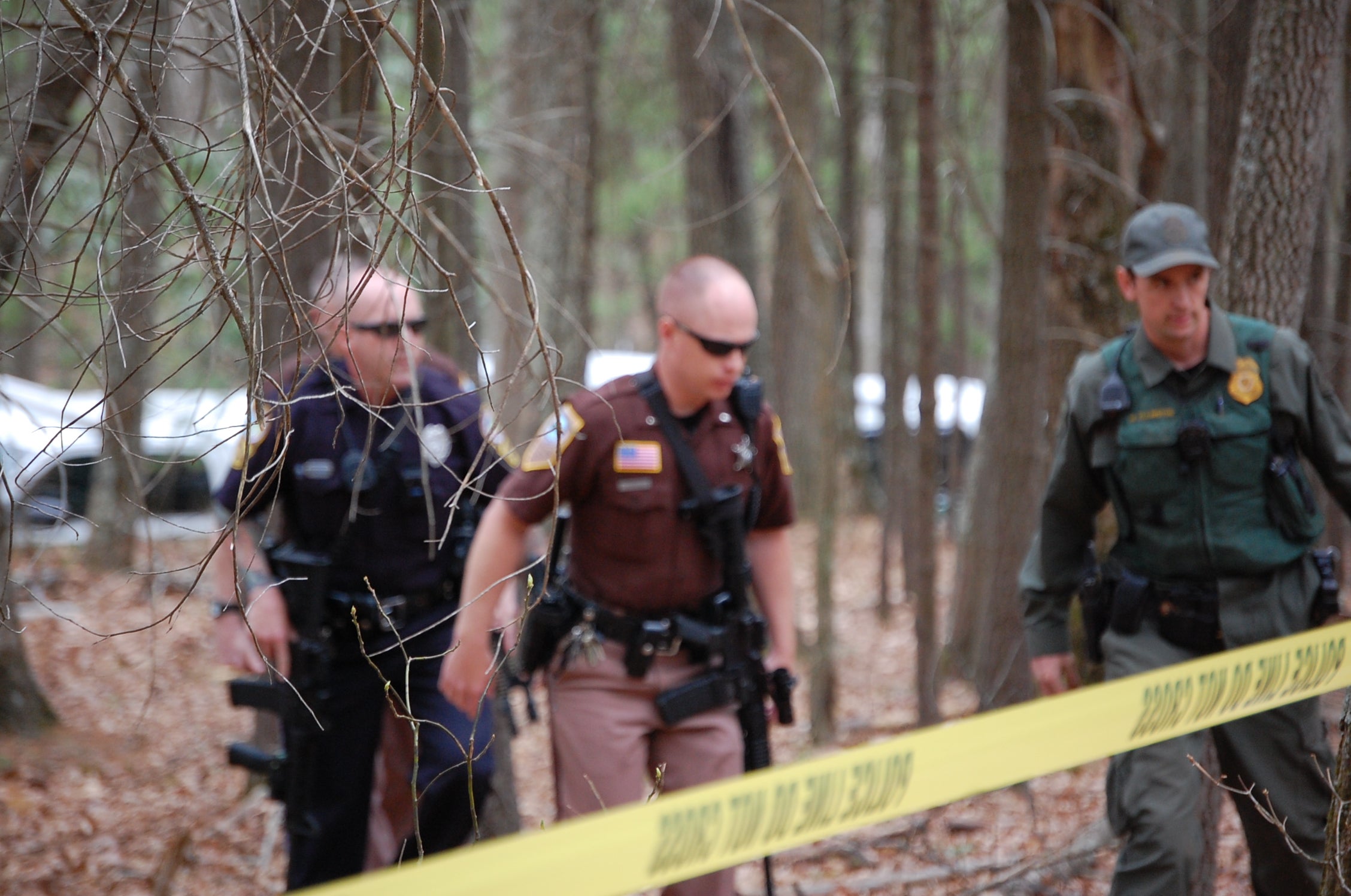
Deckard’s food and water stores have not been re-supplied for more than two weeks. For now, he is rationing out the pre-packaged meals he brought, and supplementing them with “lots and lots of granola bars”. He catches rainwater in a basin when it’s cloudy, and charges his phone with a solar panel when it’s sunny.
The hardest part of the tree sit, he says, is the constant thirst. That, and the lack of indoor plumbing.
MVP and the USFS have found other ways to make life difficult or the protesters, according to supporters on the ground. The supporters claim authorities shine flood lights up the trees at all hours of the night, and ride ATVs directly under the suspended platforms, causing them to shake menacingly.
MVP did not respond to a request for comment, and a USFS representative would not comment on the record.
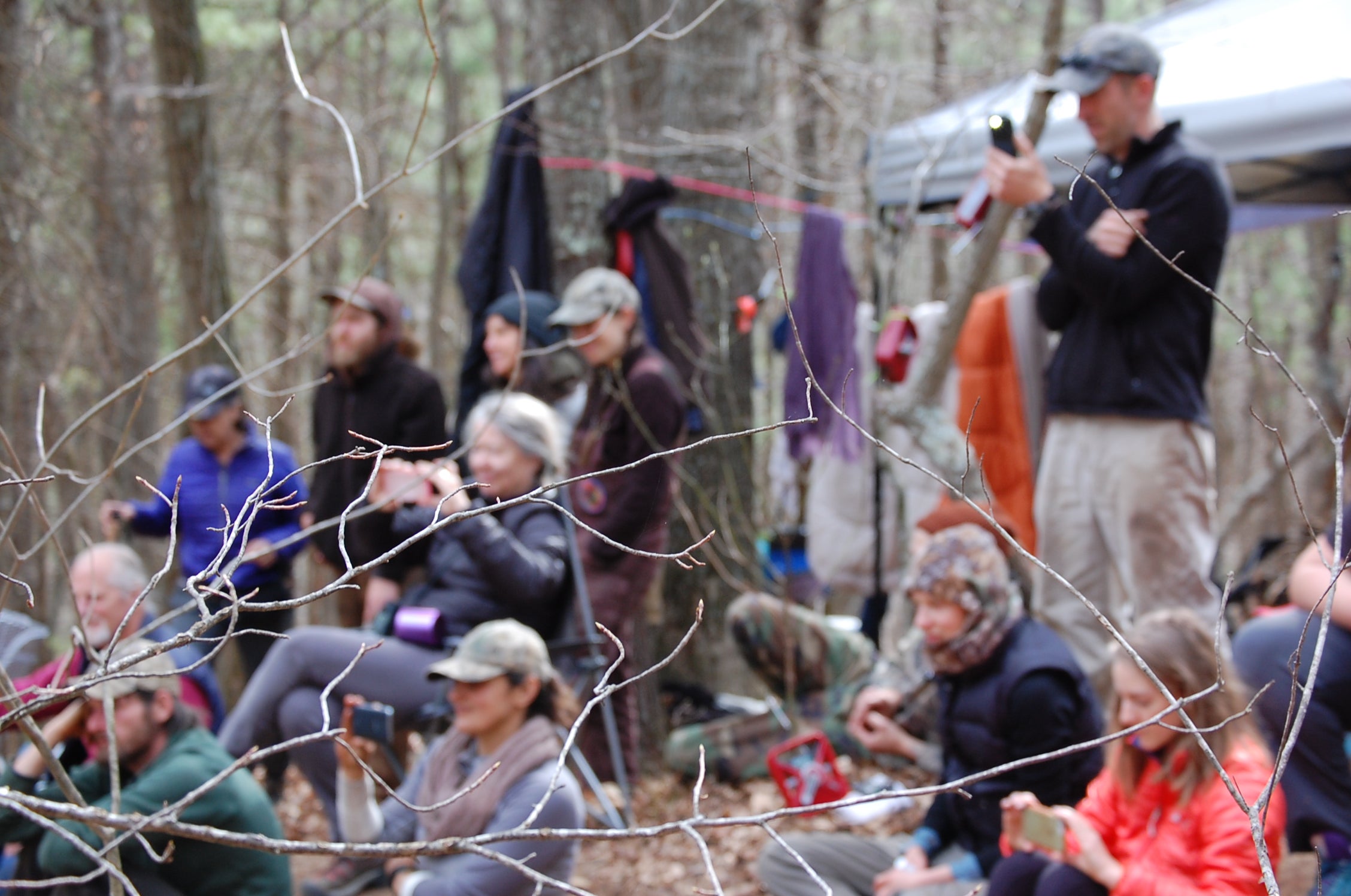
A small group of supporters have tasked themselves with keeping watch over the tree sitters, camping out as close as they can to the platforms each night. Others have made the hours-long hike to visit the tree sitters just for the day, to show their support.
Many of the visitors are locals who have been fighting the pipeline for years, but for various reasons – school, work, family – cannot take to the trees themselves. One supporter said she had arranged more than 50 hikes up to the tree sits, for people aged 12 to 70.
Whether the effort is worth it has yet to be seen. MVP says the project has not been delayed by the protests, only financially inconvenienced. If their legal efforts are successful, they may get the tree sitters forcibly evicted in the coming weeks. If the closure order around the tree sitters continues, they may starve them out sooner than that.
But several locals said that, regardless of what happens next, the tree sits have already had their intended effect: They got people talking again.
Just this week, representatives from 18 different Democratic party committees signed on to a letter urging Governor Ralph Northam to stop the pipeline. Days earlier, a state senator filed suit against USFS, claiming federal officials were illegally blocking access to the tree sitters' platforms.
Tina Badger, a Virginia native who has fought the pipeline’s construction for years, says she’s never heard more people talking about the project than now.
“For a while it was pretty much off most peoples’ radar,” Ms Badger said. “Now, your average citizen is ranging anywhere from upset about what’s going on to outraged.”
Join our commenting forum
Join thought-provoking conversations, follow other Independent readers and see their replies
Comments
Bookmark popover
Removed from bookmarks